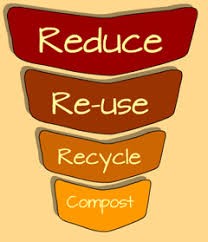It’s Pollution Prevention Week
Every year, the federal Environmental Protection Agency (EPA) recognizes a week in September as Pollution Prevention Week. This year it’s September 19 to 25, and it’s an opportunity to celebrate practices that reduce or prevent pollution from being released into the environment prior to recycling, treatment, or disposal activities. We each have a role in preventing pollution and contributing to a healthier, greener environment.
NYCHA’s Environmental Health and Safety Department would like to share some ways that you can reduce and prevent pollution – it can be as simple as limiting trash or buying products that are more environmentally friendly:
- Purchase safer products. By looking for greener products when you shop, you will join millions of Americans in helping protect human health and the environment.
- Reduce the amount of trash. Reducing consumption, reusing items, and recycling products and materials help protect the environment.
- Reduce solid waste. Learn about the practical steps you can take to reduce the toxicity of your trash by referring to the Consumer’s Handbook for Reducing Solid Waste.
- It’s important to recycle properly. Learn how to recycle different materials by clicking here and here.
- Reuse or repurpose items. Reuse items such as old clothing, cloth grocery bags, and containers to prevent waste.
If we all do our part to reduce and prevent pollution, everyone benefits through cleaner air and improved health. The EPA has reported that the changes in behavior since the passage of the federal Clean Air Act in 1970 has lowered common pollutants in our air such as particles, ozone, lead, carbon monoxide, and sulfur dioxide, helping to prevent serious health issues.
According to the EPA, by working together and following the simple tips for reducing pollution, we can:
- Reduce greenhouse gas emissions that contribute to climate change and poor health
- Prevent pollution caused by the need to harvest new raw materials
- Save energy and money
- Help sustain the environment for future generations
- Reduce the amount of waste that will need to be recycled or sent to landfills and incinerators
- Allow products to be used to their fullest extent


